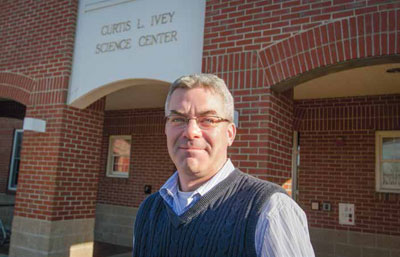
Assessing and Addressing a Community's Health Needs
In fall 2010, I was acting coordinator for Colby-Sawyer's nascent Health Studies Program. A small group of students was beginning their senior research projects, with a larger number of juniors on the horizon. Advising students on internships, Capstone projects, and potential graduate and professional opportunities became a large part of my duties.
After doing some coursework in a Master of Public Health program at UNH- Manchester in spring 2011, I wanted hands-on exposure to the field of health studies. The City of Nashua's Division of Public Health and Community Services (DPHCS) was in the midst of synthesizing an extensive Community Health Assessment (CHA) report. The goal was to gain an understanding of health concerns and health care systems in the Greater Nashua area by identifying, collecting, analyzing and disseminating information on community assets, strengths, resources and needs. I contacted the group, promised not to break anything, and was invited to the next meeting.
In addition to DPHCS staff, the group included medical professionals and health providers, hospital administrative staff and a variety of community leaders. Kerran Vigroux, director of the Nashua DPHCS, noted the value of bringing more than 25 organizations together to work on the initiative. To inform the report, the group used primary data from focus groups and community surveys, and secondary data from the New Hampshire Division of Health and Human Services, U.S. Census, a Center for Disease Control Behavior Risk Survey, and local sources such as homeless shelters, mental health agencies, the school district and police department. In addition to analyzing the region's demographics, the report considered the strengths and challenges of public health issues, ranging from microbial threats and preventable risks to healthy homes and emergency preparedness.
While the community health assessment was completed in fall 2011, our work continues. The report will serve as the basis for a Community Health Improvement Plan, or CHIP.
“It has been great to see the improvement process in action with the publication of the first Community Health Assessment in over 10 years, and the development of the Community Health Improvement Plan, which will lay the foundation for implementing strategies over the next three years,” says Ashley Conley, an epidemiologist with Nashua's DPHCS.
Initially, our CHIP group considered the evidence in the assessment report to determine which among the community's health concerns and needs should become our highest priorities. We identified the top three goals as weight management, improved nutrition and physical fitness; access to health care; and access to mental health services. Our group is now developing strategies to address these major areas of health care needs in Nashua.
The Access to Healthcare group, which I co-chair, has begun to consolidate information on low-cost pharmaceutical assistance plans available to the community. We plan to create and launch an education campaign to raise awareness about the health care resources that are accessible through the area's major health care providers. Our other strategies include a plan to design a resource-rich website of services for residents of the Greater Nashua area, as well as a commitment to outreach that educates the com- munity about specific health issues and related resources.
“Our Access to Healthcare workgroup provides an important perspective that will facilitate the success of the goals, objectives and strategies of Nashua's Community Health Improvement Plan,” says Vigroux. “A key element of Colby-Sawyer College's mission is to 'prepare students to thrive in, and make a positive impact upon, a dynamic, diverse and interdependent world.' This is clearly modeled in the college's willingness to share Peter's time and talent with our Access to Healthcare initiative.”
Once these and other CHIP strategies are implemented, our group will focus on assessing their effectiveness. In this way, the CHA and CHIP efforts become perpetual cycles: assessing, implementing improvement measures, and determining their effectiveness by reassessment.
Circling back to my original intention for engaging in this research—to gain hands-on exposure to health studies—I now see additional opportunities for our students to contribute to this long-term effort to assess and address a community's public health needs. The Nashua CHA and CHIP may well serve as a resource for our students' potential community service projects, internships or Capstone research projects.
The Health Studies Program at Colby-Sawyer has evolved, with majors established in Health Care Management, Public Health, and Health Promotion, with support from the Departments of Business Administration, Nursing, and Exercise and Sport Sciences. Student interest in the program remains high. I look forward to applying my growing body of knowledge and experience to support these programs, our students, and my faculty colleagues, whose hard work has made these programs the success they are today.
- Peter White, Associate Professor of Natural Sciences


